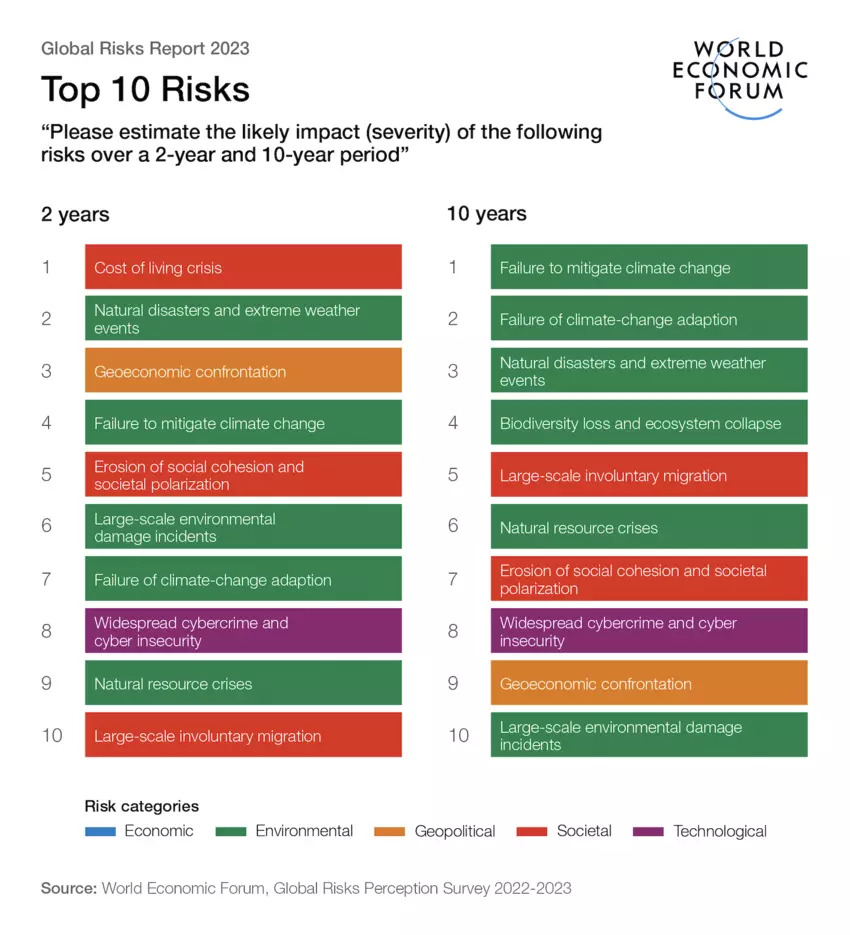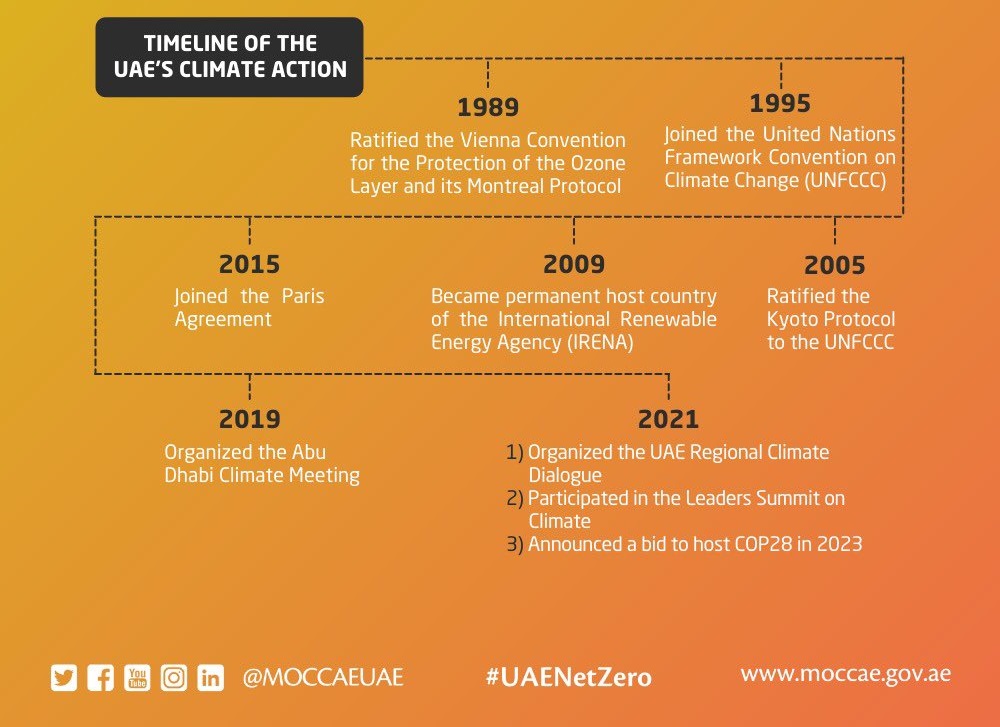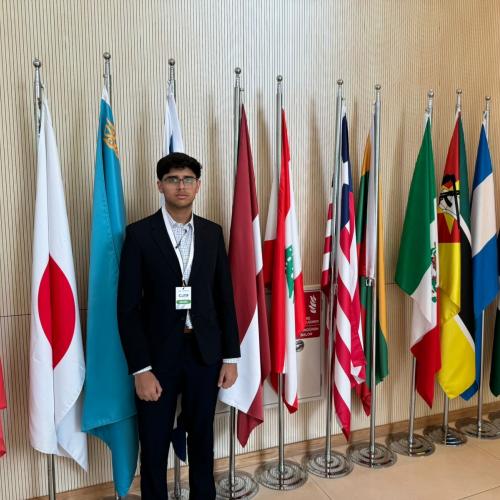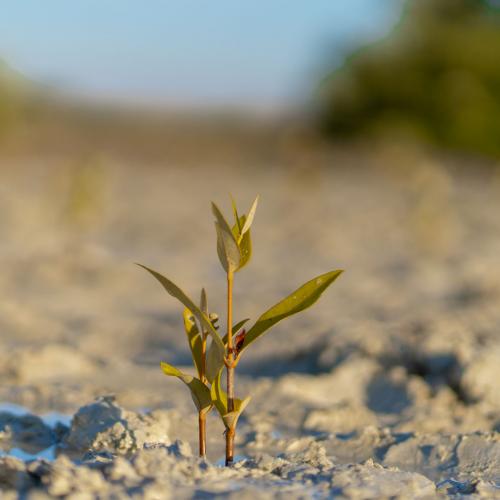We Still have Seven Years to Achieve 1.5°C
The science is clear – all sectors must act now to rein in climate change
By Marina Antonopoulou, Chief Conservation Officer, Nature Conservation and Climate at Emirates Nature-WWF
There is no longer room to ponder if climate change and nature loss will affect the way we live and do business. The annual WEF Global Risk Report published earlier in 2023, lists five environmental concerns amongst the top ten risks for economies and societies within a 10 year horizon. Of these, the top two risks are directly related to climate: “failure to mitigate climate change” and “failure of climate change adaption”.
Climate change is already considered one of the greatest risks of our times.

Our last chance to turn the tide
Scientists are now warning us that we have seven years to limit global warming to 1.5°C above pre-industrial times. This threshold is widely considered the best-case scenario; every fraction beyond 1.5°C can result in catastrophic impacts.
We are already witnessing how the return of the El Niño phenomenon this year, together with human-induced global warming, is temporarily pushing global surface temperatures even higher and causing unpredictable weather across the world. It is evident that every possible step must be taken to rein in the cascading threat of climate change. And we must act fast to prevent irreversible consequences.
IPCC’s AR6 report reminds us that we have tools across every sector to halve emissions by 2030, such as low-cost technology solutions for economy-wide transformations and renewable energy that is now 85% cheaper than it was in 2010. Nature itself is a powerful ally to both mitigate and adapt to climate change: research demonstrates that Nature-based Solutions can provide over one-third of the emission reductions required by 2030 to stabilize warming below 2°C. Accelerated action is critical to implement these solutions.
A whole-of-society approach
Adopted at COP21 in 2015, the landmark Paris Agreement calls upon each country to create climate action plans and submit these as Nationally Determined Contributions (NDCs), which would be updated every five years and aligned to pursue 1.5°C.
Despite the significant progress that many have made, the results of the first ever Global Stocktake at COP28 are expected to confirm that the world is far off course to achieving Paris-aligned targets, as science has already indicated.
To close the emissions gap, it is imperative that, together with strong government policies and plans at a national level, all stakeholders join forces to cut emissions as well as integrate climate action into their decision-making. This includes sub-national governments who operate at the local or regional level and other non-state actors such as cities, academic institutions, coalitions, NGOs, businesses and organizations.
As the UN Secretary General recently emphasized, “the world needs climate action on all fronts – ‘everything, everywhere, all at once.”

The vital role of non-state actors
The UAE is setting the scene for multi-stakeholder action on the ground by taking a sectoral approach to achieve its national net zero objective as well as the faster pace of decarbonization announced in its recently updated NDC.

The good news is that non-state actors across the private sector are increasingly aware of how closely interlinked climate change and nature are to their business models. Corporate sustainability is evolving to go beyond traditional corporate stewardship in addressing the ‘dual materiality’ of climate in their operations: how companies are impacting but also being affected by climate change, biodiversity loss, water scarcity, land degradation and so on.
No single organisation can bear the weight or make such changes alone. Multi-stakeholder dialogue and partnerships are critical in overcoming common barriers and scaling up action at the rate that we need across the value chain. Alliances amongst the private and government sector, as well as NGOs and academia can play a key role in collectively identifying and amplifying solutions on the ground. Such partnerships are at the core of our work at Emirates Nature-WWF.
Emirates Nature-WWF recognizes that the path to decarbonization is complex and launched the UAE Alliance for Climate Action (UACA) to convene non-state actors across sectors to synergize, collaborate and be more ambitious in their net zero targets.
Endorsed by the Ministry of Climate Change and Environment (MOCCAE), and aligned with the UN’s global Race to Zero campaign, UACA equips stakeholders with tools, visibility, capacity building and offers a platform for multilateral collaboration in activating policy and solutions that can unlock real action for a net zero future.
In parallel, it is also crucial to ‘lock’ carbon that is stored on the ground and avoid additional emissions due to land use change, deforestation and coastal habitat loss. Protection and restoration of natural carbon sinks and degraded land is a ‘no regret’ strategy that if implemented properly can help us tremendously in the fight against climate change.
Change starts with us
With COP28 just around the corner and being hosted in the UAE, there is no better time for local business and organizations to be part of the global momentum towards a credible pathway to net zero; and to create a legacy for the UAE economy that goes beyond COP28. Businesses should prepare to increase their stewardship for a greater good if they wish to be relevant in an ever-changing global market.
We must see this as an opportunity to do more, act faster and bring together all the necessary elements to curb emissions in line with science. Our seven-year countdown has already begun.
This article is part two of our ongoing climate series. For a science-based refresher on climate change and the impacts of rising temperatures, check out Part One: The State of our Climate Today.



